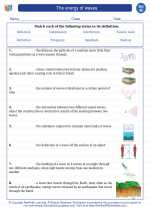Universal Solvent
Universal solvent refers to a substance that has the ability to dissolve a wide range of different compounds. The most well-known universal solvent is water. Water is considered a universal solvent because of its unique chemical properties.
Properties of Water as a Universal Solvent
Water is a polar molecule, meaning it has a partial positive charge on one end and a partial negative charge on the other. This polarity allows water to interact with a wide variety of substances, making it an effective solvent for many different compounds.
Additionally, water has a high dielectric constant, which means it is able to weaken the forces between solute particles, allowing them to dissolve more easily in the water.
Examples of Universal Solvents
While water is the most well-known universal solvent, there are other substances that also exhibit universal solvent properties, including ammonia, acetone, and sulfur dioxide. These solvents are able to dissolve a wide range of solutes due to their unique chemical properties.
Applications of Universal Solvents
Universal solvents are used in a wide variety of applications, including cleaning, industrial processes, and laboratory experiments. The ability of these solvents to dissolve a wide range of compounds makes them indispensable in many different fields.






